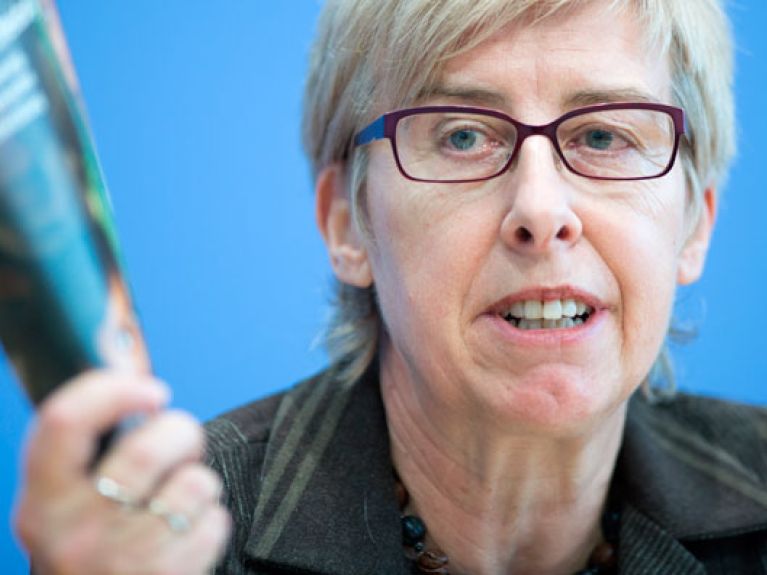Health and world population
An interview with Renate Bähr, Executive Director of DSW (Deutsche Stiftung Weltbevölkerung), about the German contribution to the Development Agenda that will supersede the Millennium Development Goals.

The world’s population is growing rapidly: 7.2 billion people were living on our planet at the beginning of 2014. According to forecasts by the United Nations (UN), there could be more than nine billion by 2050, the majority in developing countries. If we want to be able to combat poverty there, say the experts, population growth will have to be significantly weakened. The precondition for this is the realisation of the “right to sexual and reproductive health”, as it is referred to in international agreements. This is actively championed by the internationally renowned foundation DSW (Deutsche Stiftung Weltbevölkerung). For World Population Day we interviewed Executive Director Renate Bähr.
Of which DSW success are you especially proud?
We have achieved an incredible amount through our work with young people in developing countries and through our political work. In Ethiopia, Kenya, Tanzania and Uganda, for example, more than 17 millions young people have learned from us how they can protect themselves against unwanted pregnancies and HIV and AIDS. And I am very pleased that we have an important circle of supporters for our goals in the shape of the Parliamentary Advisory Council on Population and Development with almost 30 Bundestag members from all party groups.
The United Nations Millennium Goals project comes to an end in 2015. What should the main focus of the follow-up goals be?
Health must have a very big emphasis in the follow-up goals. The DSW argues that the new Agenda should contain an independent and ambitious health goal. Furthermore, health should also be taken into account as an element of other goals – for example, not only in education, but also in environmental goals and on the question of distributive justice. It is important here that the health goal be well formulated, because it has to cover a very broad area – from HIV and tropical diseases to sexual and reproductive health and rights to the strengthening of health systems.
What can Germany do in this context?
I expect the Federal Government to enter the negotiations with ambitious and progressive positions. I am pleased that the Federal Government spoke in favour of an independent health goal in its white paper on the post-2015 period. When it comes to the concrete formulation of this goal, however, more work still needs to be done to enable access to adequate healthcare for all.
World Population Day on 11 July

